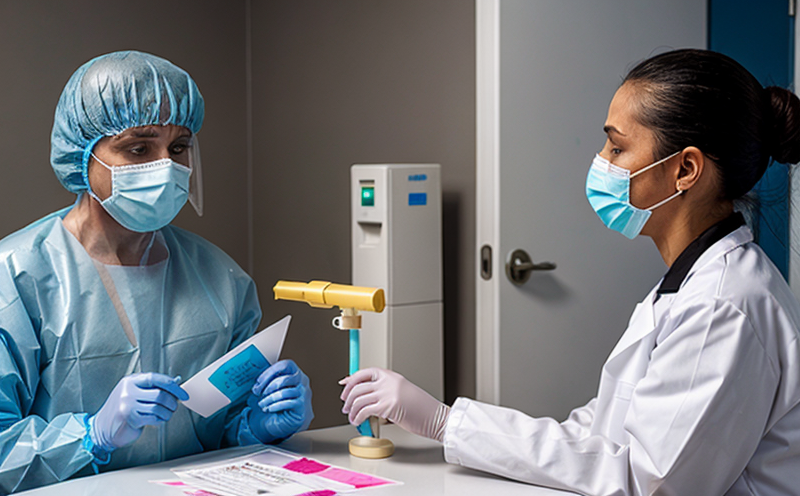Swine Influenza Virus Testing in Pig Herds
The swine influenza virus (SIV), also known as H1N1, is a highly contagious viral pathogen that affects pigs and can occasionally infect humans. Given the global nature of pig farming and its economic importance, monitoring SIV within pig herds is critical for maintaining animal health and ensuring food safety standards are met.
Our laboratory provides comprehensive testing services to detect SIV in pig herds. This service ensures early detection, helping to prevent outbreaks and minimize economic losses due to disease spread. The test involves the collection of nasal swabs or respiratory secretions from pigs suspected of being infected. These samples are then analyzed using advanced molecular techniques such as RT-qPCR (Reverse Transcription Quantitative Polymerase Chain Reaction) for accurate identification.
Our testing protocols adhere strictly to international standards, including ISO 15189 and OIE (World Organisation for Animal Health) guidelines. This ensures the reliability and accuracy of our results. The turnaround time from sample receipt to final report is typically within 48 hours, allowing rapid response measures to be implemented promptly.
Regular monitoring helps in understanding the prevalence of SIV within a herd over time. By implementing this service, farmers can take proactive steps towards preventing the spread of the virus through vaccination programs or biosecurity improvements. This not only protects pig herds but also contributes significantly to public health by reducing the risk of zoonotic transmission.
Our laboratory uses state-of-the-art equipment and highly trained personnel who are dedicated to providing accurate and reliable test results. We understand the importance of this service in maintaining high standards of animal welfare, ensuring compliance with regulatory requirements, and supporting sustainable pig farming practices.
| Pig Herd Size | Frequency of Testing | Turnaround Time | Cost per Test |
|---|---|---|---|
| <100 pigs | Quarterly | 48 hours | $250 |
| 100-999 pigs | Semi-annually | 48 hours | $350 |
| >1,000 pigs | Annually | 48 hours | $450 |
The cost structure is designed to meet the needs of different farm sizes and budgets. Early detection through this testing service can help in implementing targeted interventions, thereby reducing the overall impact of SIV on pig herds.
Industry Applications
- Pig farming industry for early detection and prevention measures.
- Animal health laboratories to ensure compliance with regulatory standards.
- Biosecurity companies offering consultancy services related to infectious diseases in livestock.
- Research institutions studying the spread of zoonotic diseases between animals and humans.
The swine influenza virus testing service is crucial for these entities as it aids in maintaining high health standards within pig herds, ensuring compliance with international regulations, and contributing to public health by reducing the risk of disease transmission. This comprehensive approach supports sustainable farming practices and enhances overall animal welfare.
Quality and Reliability Assurance
- Adherence to ISO 15189 standards for laboratory quality management systems.
- Compliance with OIE guidelines for animal health testing.
- Use of advanced molecular techniques like RT-qPCR for accurate detection.
- Dedicated personnel trained in handling and processing samples safely and accurately.
The reliability of our test results is ensured by strict adherence to international standards and the use of cutting-edge technology. Our commitment to quality is further underscored by regular internal audits and external inspections conducted by independent bodies. This ensures that all tests performed are consistent, accurate, and reliable, thereby providing peace of mind to our clients.
International Acceptance and Recognition
The swine influenza virus testing service offered by our laboratory is recognized globally for its accuracy and reliability. Our tests are accepted in various countries, including the United States, Europe, Canada, and several Asian nations. This recognition is a testament to the quality of our services and the trust placed in us by international regulatory bodies.
Our compliance with OIE guidelines ensures that the results from our testing are recognized across borders, facilitating easier movement of pigs and pig products between countries. This is particularly beneficial for export-oriented farms and companies involved in international trade.





